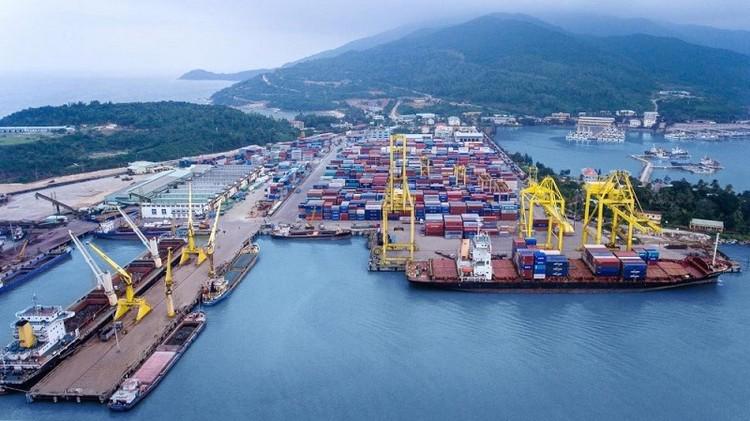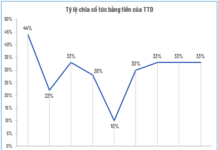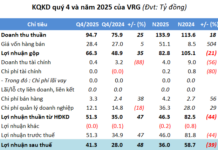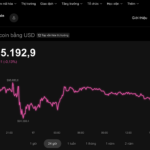Leveraging the Urban Governance Model to Empower Da Nang City
The government has recently enacted Resolution 55/NQ-CP, approving the draft resolution and submission of the government to the National Assembly’s Standing Committee and National Assembly regarding the draft resolution amending and supplementing Resolution No. 119/2020/QH14 dated June 19, 2020 of the National Assembly regarding piloting the urban governance model and specific mechanisms and policies for the development of Da Nang City.
Advantages of the Urban Governance Model
The objective of this policy is to establish an urban governance model for Da Nang City that is streamlined, efficient, flexible, and seamless in its operations, meeting the city’s development requirements in a dynamic and innovative manner. Simultaneously, it aims to enhance the autonomy and accountability of the urban government, mobilize all resources for sustainable development, and promote the formation of a modern, civilized metropolis.
According to Nguyen Van Quang, Secretary of the Da Nang City Party Committee, Da Nang has adopted and modified many provisions in the draft resolution on special mechanisms and policies suggested by ministries and agencies, ensuring alignment with the goal of simplifying procedures, setting maximum time limits for investment approval, and implementing superior and open policies to attract investors. It also outlines the binding responsibilities of the city in implementing these specific mechanisms and policies.
Da Nang City leaders believe that implementing the urban governance model will streamline the administration, foster a more agile and seamless operational approach, enhance proactive governance, and enable swift decision-making on crucial and pressing local issues. The new policies and proposals contribute to the development of Da Nang by 2030, with a vision extending to 2050, in line with the stated objectives.
The streamlining of subordinate professional agencies will enhance their efficiency and effectiveness; strengthen the delegation of authority between central agencies and the city government; and elevate the autonomy and accountability of the urban government. Additionally, it will reduce the budget expenditure for the activities of district People’s Councils (approximately 35.7 billion VND/year, corresponding to 215 district and 1,275 ward People’s Council delegates) and downsize 69 positions for full-time district and ward People’s Council delegates.
Streamlining Administration and Enhancing Accountability
The model operates on a centralized and unified approach, clearly defining the authority, accountability, and responsibilities of the government apparatus and its officials, thus enabling stricter monitoring of public service delivery through the implementation of enhanced management tools and oversight mechanisms.
Regarding the organization of the urban governance model, Minister of Planning and Investment Nguyen Chi Dung emphasizes the importance of thorough delegation to Da Nang City, including authority over Industrial Park Management Boards, Economic Zones, and Free Trade Zones. He suggests that this could catalyze an FDI revolution, paving the way for the development of not only Da Nang but also Vietnam as a whole.
As per the proposal, the urban governance model for Da Nang City will be implemented from July 1, 2026.
Two Groups of Special Mechanisms and Policies
According to Resolution 55/NQ-CP, on April 26, 2024, the government authorized the Minister of Planning and Investment, on behalf of the Prime Minister, to sign the government’s submission regarding the draft resolution amending and supplementing Resolution No. 119/2020/QH14 dated June 19, 2020 of the National Assembly on piloting the urban governance model and specific mechanisms and policies for the development of Da Nang City, presenting it to the National Assembly’s Standing Committee and National Assembly for consideration and approval during the 7th Session (May 2024) following the expedited review process.
Significantly, the draft resolution proposes two groups of special mechanisms and policies, comprising 34 specific policies.
Group 1 includes policies related to the organization of the urban governance model for Da Nang City (8 policies).
Group 2 encompasses special policies proposed for the development of Da Nang City (26 policies). These include policies on investment management (4 policies); finance, state budget, tax, and customs (5 policies); planning, urban development, resources, and the environment (6 policies); attracting strategic investors (1 policy); microelectronics, semiconductors, artificial intelligence, information and communication, science and technology management, and innovation (8 policies); and salaries and income (2 policies).
The draft also proposes establishing the Department of Food Safety as a specialized agency under the Da Nang City People’s Committee. This will enable the committee to effectively implement food safety management, enhance surveillance, and trace the origin of food at markets, commercial centers, and service establishments, thereby improving the quality of local goods.

Proposal for a Free Trade Zone in Da Nang
Earlier in April 2024, Minister of Planning and Investment Nguyen Chi Dung chaired a meeting with leaders of the Da Nang City Party Committee, the Da Nang City People’s Committee, the drafting committee, and the editorial team for the draft resolution of the National Assembly on piloting specific mechanisms and special policies for the development of Da Nang City.
During the meeting, Da Nang proposed piloting the establishment of a free trade zone linked to Lien Chieu Port. This functional zone would be dedicated to attracting investment, developing port logistics, services, trade, duty-free shopping, and other activities. The Da Nang Free Trade Zone would have clearly defined geographical boundaries, separated from the surrounding area by a physical barrier to ensure effective customs inspection, monitoring, and control by customs authorities and other relevant agencies. Transactions involving the exchange of goods between the Da Nang Free Trade Zone and external entities would be considered exports or imports.
The Da Nang Free Trade Zone would offer attractive investment incentives. Notably, the duration of investment projects within the zone would be comparable to that of projects in economic zones (as per investment laws). Based on the scale, nature of the investment project, and the investor’s proposal, the Da Nang City People’s Committee would determine the land use period for production and business activities within the zone, not exceeding 70 years. The level of incentives, period of exemption, and reduction of land rent, as well as the duration of corporate income tax incentives for infrastructure development and business projects in the functional areas, would be similar to those applicable in economic zones.
Additionally, the purchase and sale of goods and services between domestic and foreign entities within the free trade zone would be subject to the same regulations as those applicable to duty-free zones regarding import and export duties, value-added tax, and special consumption tax.
Furthermore, other investment incentives would be in line with those offered in economic zones, as stipulated in laws governing investment, accounting, taxation, land, and other relevant legislation. If investment projects qualify for different levels of investment incentives within the same period, investors may choose to apply the highest level of incentive.
Additional Proposed Incentives
The draft resolution also proposes additional incentives, such as:
Exempting various categories of individuals from quantity and value restrictions on duty-free purchases within the commercial and service zone of the Da Nang Free Trade Zone.
Empowering the Management Board of the High-Tech Park and Industrial Park of Da Nang City to appraise, approve, and revise detailed planning tasks and schemes within the high-tech park, concentrated information technology park, industrial park, and Da Nang Free Trade Zone.
Authorizing the city to pilot land acquisition for socio-economic development in the national interest, including projects for the construction of technical infrastructure.
Minister Nguyen Chi Dung suggested that Da Nang consider requesting additional mechanisms related to visas within the free trade zone, such as extending the duration of stay for tourists and experts. Tax policies should also be favorable, including corporate income tax incentives to attract businesses and personal income tax incentives to attract workers and professionals. It may be possible to grant business licenses without requiring a specific project.
However, Minister Nguyen Chi Dung cautioned that appropriate management mechanisms are necessary to ensure that the free trade zone remains liberal while adhering strictly to legal regulations.
The formulation of the resolution amending and supplementing Resolution No. 119/2020/QH14 dated June 19, 2020 of the National Assembly regarding the organization of the urban governance model and the establishment of special and superior mechanisms and policies aims to create a sound legal basis for leveraging Da Nang City’s potential and advantages, fostering breakthroughs, addressing economic and social development bottlenecks, and contributing to the city’s development by 2030, with a vision extending to 2050, in line with the established objectives.















